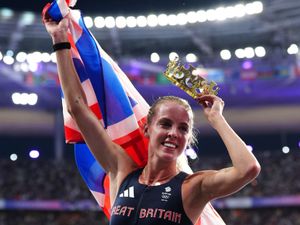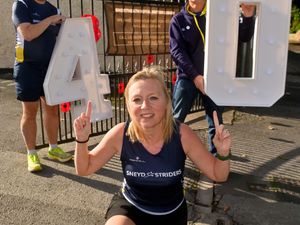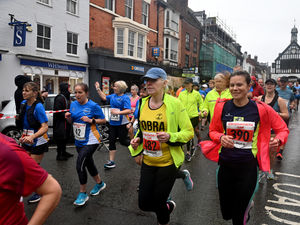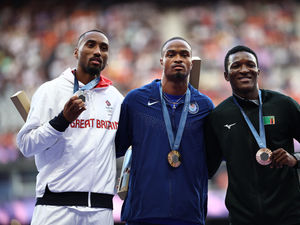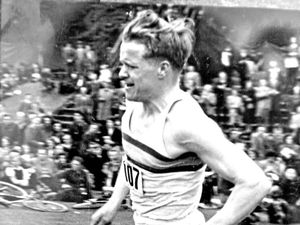Paralympic gold medallist Tully Kearney taking first steps in new sport
Gold medallist Tully Kearney has taken the incredible step of becoming a dual athlete after joining the England Athletics Paralympic Talent Programme.
The Aldridge swimmer already has a distinguished career, having won gold and silver at the recent Tokyo Paralympics – while setting two world records – to accompany her several world championship gold medals.
Now, the 24-year-old has been selected for the England Athletics Paralympic Talent Programme as a frame runner.
The two-year programme is designed for people they expect will reach the senior team in the next six to eight years.
“I was a bit shocked to get the news that I was selected,” she told the Express & Star.
“It’s an honour to be included. British Swimming embraced the fact I’m becoming a duel athlete and supported me through it, which I am very grateful for.
“It makes a big difference when you have the support of both sports behind you.”
Frame running was created for people who have such severe disabilities that they normally cannot take part in sport.
The three-wheel frame supports a seat and a chest plate that takes the user’s body weight, while they use their feet to walk or run.
Kearney has generalised dystonia which causes spasms throughout the body and frame running has given her a new lease of life both on and off the track.
“I ended up having shoulder surgery on both shoulders in 2018 so couldn’t swim for six months and being an athlete I’m not very good at doing nothing,” she added.
“As I’m quite limited to what I do, and in swimming I just use my arms, it appealed to me that there was I sport that I could use my legs.
“I tried it and absolutely fell in love with it. It’s been helping so much with my fitness and with my shoulder injuries it is a way to exercise, but also use my legs.
“Not just in a training perspective, it allows me to go places my wheelchair can’t. It allows me to go on dog walks with my dad up hills.
“A lot of my family run and I’ve never been able to join in, so it’s also my way of becoming part of that.
“It made sense to continue with it and now I’m thinking about the future.
“I want to swim until at least Paris 2024, but I have to think about the future after that and it may be something I want to push further. Swimmers sometimes have a shorter career than other sports because of the repetitive overhead movements, so when I do eventually retire from swimming this will give me other options.”
Although Kearney is keeping her options open regarding potential career in frame running, she is currently advocating awareness.
Frame running can offer disabled people new freedom in sport and their day-to-day lives, and Kearney is keen to spread the word.
She said: “I’m looking at potentially going far with it, but my biggest focus at the moment is getting the word out there.
“With a friend of mine, who is also a frame runner, we’ve been doing the park run and they’re incredible. They’ve been so inclusive.
“I was put off going to events that call themselves inclusive, because they’re not always accessible to disabled people, but the park run has been incredible. People always come up and ask about the frame and it’s really important for me to get the word out there.
“Frame running isn’t just for people that want to compete, it’s also for kids and adults and it gives them the gift of being able to walk.
“My main aim is let people know these frames are available and Cerebral Palsy Sport have a rental scheme – I want people to know they can access this amazing piece of equipment.
“It offers complete freedom and helps you feel no different to anyone else.
“The mental health benefits of being able to get out, and not having someone push you, is a massive thing. Not many disabled people get to experience that on their own.”
But Kearney and her fellow athletes also face another obstacle after frame running was omitted from the Paris 2024 Paralympics.
Campaigners are working to get it included for 2028 and Kearney feels that athletes with the most severe disabilities have been harshly treated.
She added: “It was massively disappointing and not just with the frame running, but with other sports and classifications being dropped.
“It seemed like high support needs athletes were forgotten about. For many people it’s the only sport they can do because of their physical impairments.
“They often include the higher class athletes – who are the least disabled athletes – which for me is not promoting inclusivity.
“In 2028 it would be amazing if frame running and some other events for high support needs athletes were included. It’s really important to show the little boys and girls at home, who have the same disabilities, that sport is for them.”

